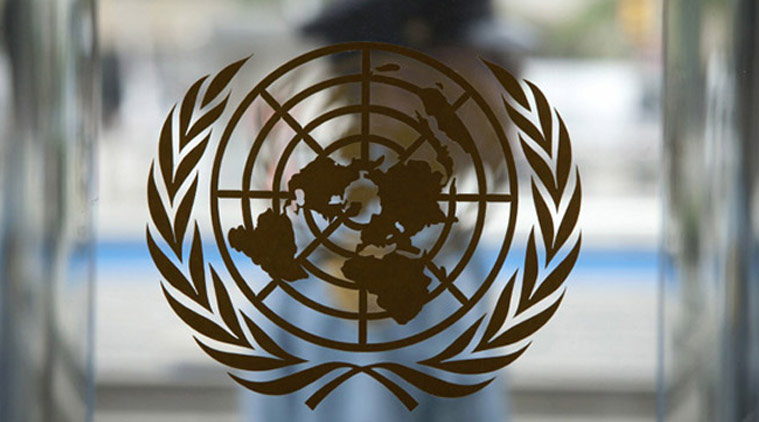Statement by Representative of the Russian Delegation mrs. Anna Shestopalova at the Thematic Discussion on Disarmament Machinery in the First Committee of the 77th session of the UNGA
Mr. Chair,
The core role in addressing the matters related to arms control, disarmament and non-proliferation (ACDN) as well as international peace and global security is assigned to the United Nations, as envisaged in its Charter. Tasks of strengthening the operational and developing new regimes in this area should be fulfilled within the existing conventional or UN disarmament machinery. This is the only principle to ensure a genuine multilateralism in disarmament.
Sustained and constructive work of all the elements of the unique disarmament triad – the UNGA First Committee, UN Disarmament Commission (UNDC), and Conference on Disarmament (CD) – needs to be intensified. To that end, Member States should strictly abide by the mandates and rules of procedure of those structures and avoid politisation that seriously undermines a search for consensus solutions to the pressing issues in the field of ACDN.
In this context, the continuous Western States' attempts to shatter the multilateral disarmament fora and use the UN for their own mercenary ambitions without taking into account the interests of other Member States, primarily from among the developing countries, require special attention. The States mentioned keep on politicising the activities of the UNGA First Committee, UNDC and CD. They openly call for a revision of the current ACDN architecture, based on the norms and principles of international law, and its replacement with some non-binding rules designed to implement the tasks of ensured further dominance of this group of states.
We consider such actions absolutely unacceptable, confrontationally charged, fraught with a world community split-up, tension grown, trust lost and its attention diverted from the real problems of international security. Such steps provoke further erosion of the existing international legal system in the field of ACDN, undermine international security in general, and make impossible any progress on the way of complete and universal disarmament.
The recently closed CD session is a clear example of the manifestation in full of all the above destructive trends. In violation of the Conference’s mandate, Western States use this forum to settle political scores. Attempts are being made to bring issues that are not directly related to CD mandate and agenda. The reason for this state of affairs lies in the unwillingness of Western colleagues to address what they are entrusted with by the decisions of the UN General Assembly First Special Session to consider disarmament issues. Namely, to negotiate international arms control and disarmament instruments. This is the reason for the low efficiency of the work of the Conference this year.
We would like to draw attention to the fact that the US side continues to fail to comply in good faith with its obligations regarding the issuance of visas to members of delegations which are supposed to participate in the UN events.
This practice is unacceptable and is a gross violation of US international legal obligations under the 1947 UN Headquarters Agreement, which provides for unimpeded access of representatives or officials of Members of the United Nations to the Headquarters district and for the issuance of visas "without charge and as promptly as possible".
It is hardly realistic to expect a professional expert dialogue without unimpeded access to New York ensured by US authorities for all Member States in fulfillment of their obligations under the 1947 UN Headquarters Agreement and UNGA Resolution 75/146.
Mr. Chair,
We are convinced of the need to consolidate the international community around a creative and constructive agenda in order to maintain and enhance the existing system of arms control, disarmament and non-proliferation agreements. Guided by these goals, we are submitting a biennial draft resolution on “Strengthening and developing the system of arms control, disarmament and non-proliferation agreements” for consideration by the UNGA First Committee. The document is designed in the spirit of a unifying agenda. We look forward to its adoption by consensus.
Russia, for its part, will continue its efforts to improve the effectiveness and coherence of the disarmament triad. It is important to oppose any attempts to revise the UN disarmament machinery, under whatever pretexts. The work of the First Committee of UNGA, the CD and the UNDC must be results-oriented and carried out in full compliance with the UN Charter, other norms of international law and the mandates defined for them. Ideas about reforming the basic working methods and rules of procedure of UN disarmament forums are counter-productive.
We would like to recall our initiative presented in March 2016 to overcome the two decades of stagnation in the negotiation work of the CD which remains relevant. And now we renew the call to launch the elaboration of an international convention to combat acts of chemical and biological terrorism, which would allow overcoming stagnation and launching the negotiation process in the Conference in accordance with the existing mandate. The Russian-Chinese draft treaty on the prevention of the placement of weapons in outer space and of the threat or use of force against space objects also remains on the CD's table.
We are convinced that the Conference, by virtue of its unique status as the single negotiating forum in the field of disarmament, can make a significant contribution to normalizing the international security situation and helping to build confidence among States.
Thank you.
